Much like The Farmlink Project, San Jose SHIP Kits was born in response to the COVID-19 crisis. Eric Glader, along with a collection of individuals in Santa Clara County, founded SHIP Kits during the shelter-in-place (i.e. SHIP) order in California to help alleviate the burdens on hourly wage workers who struggle to support their families due to job loss in the COVID-19-affected market by supplying them with kits filled with food, toiletries, and children’s items.
With Eric’s background in philanthropy, along with the diverse professional experience of the other founding members—from real estate investors to business owners to restaurateurs—their combined skill sets allowed them to launch this organization. As a group of people lucky enough to be able to put food on the table, they wanted to do their part to help those in need, beginning by targeting this niche category, which has begun to broaden as they partner with other organizations, sports teams, and education groups to serve the Santa Clara County community.
One simple idea has now grown into an organization serving tens of thousands during a global crisis. “That’s what makes this country great—you see an opportunity to help others and you chase it,” Eric said proudly. While SHIP Kits’ work continues to expand, he also acknowledged how large this problem of unemployment and food insecurity is: “We are taking a small forkful of a very small slice from a very large pie in our work to support those who are struggling, but even the smallest actions can make a huge difference for someone.”
While their primary focus is with their SHIP Kits, Eric and the team have partnered with upwards of twenty other organizations to help store and distribute fresh produce. Over the past two months, The Farmlink Project has helped deliver almost 300,000 pounds of onions, potatoes, mixed greens, and green beans to San Jose SHIP Kits, much of which they gave to one of their primary partner organizations, Hunger at Home.
Similar to The Farmlink Project’s mission of redirecting surplus produce from farms to communities in need, Hunger at Home taps into the hospitality industry to redistribute surplus meals and produce. Since its founding in 2008, Hunger at Home has worked with numerous large hospitality and entertainment facilities not only to rescue the surplus food that typically goes to waste, but also to educate the chefs on how to manage food with the intention of donating the surplus. Ewell Sterner, co-founder and CEO of Hunger at Home, described their role as the “conduit between surplus and need”—something we, too, at The Farmlink Project seek to be.

As an organization that relies heavily on the hospitality industry to donate surplus food, Hunger at Home was deeply impacted by the COVID-19 closures of hotels, restaurants, and entertainment facilities. Gratefully, they have received support from their hospitality partners that donated what they had left as well as organizations such as San Jose SHIP Kits to continue to be able to feed those in need, providing 1.4 million meals since the hospitality industry closed on March 19. Ewell explained the severe impact that the COVID-19 crisis has had on those Hunger at Home serves, “The need has never been greater for those facing food insecurity.”
Eric expressed his deepest gratitude for Ewell’s amazing and generous work with SHIP Kits, describing him as “the real muscle here making sure it all gets distributed to the various food shelters throughout the area” with “a great attitude of ‘I’ll find a home for anything.’”
SHIP Kits relies solely on donations to do their amazing work. Eric described how wonderful it makes him feel to be able to report back to his team the successes and positive reactions of those they serve. “It provides a lift in their spirits—like paying them in smiles.” At SHIP Kits’ first distribution, he was amazed and humbled that what had started as a simple email exchange actually helped those in need. He recalled someone who touched him deeply at that first distribution—a mother with two young kids standing in line between two cars pulling a wagon to bring her SHIP Kit home in because she did not have a car. With a long line of closed cars in front of and behind her, she remained with her children until she received her donation box to tow home in their wagon. “That takes a lot of integrity and strength,” said Eric. “That someone is willing to come out and wait in line surrounded by closed cars to get our kits proved how much this stuff is needed.” Another woman began to shed tears as she was handed her box of fresh produce, toiletries, and essential items. “They were not tears of sorrow, but rather the relief of not being forgotten,” he explained. “Seeing firsthand what a difference a simple gift of toilet paper or bread can make for someone makes this all worthwhile.”
As an organization born in a global crisis, Eric and his team learn as they go about how best to serve their community in California, much like we at The Farmlink Project have been doing. Eric joked, “We’re all throwing spaghetti at the wall to see if it sticks—if it doesn’t, we learn from it, and if it does, we try to advance on it.” As we grow our partnership with Eric and the San Jose SHIP Kits team, we hope to continue to learn from our experiences and each other to make more pieces “stick.”
< Back
Much like The Farmlink Project, San Jose SHIP Kits was born in response to the COVID-19 crisis. Eric Glader, along with a collection of individuals in Santa Clara County, founded SHIP Kits during the shelter-in-place (i.e. SHIP) order in California to help alleviate the burdens on hourly wage workers who struggle to support their families due to job loss in the COVID-19-affected market by supplying them with kits filled with food, toiletries, and children’s items.
With Eric’s background in philanthropy, along with the diverse professional experience of the other founding members—from real estate investors to business owners to restaurateurs—their combined skill sets allowed them to launch this organization. As a group of people lucky enough to be able to put food on the table, they wanted to do their part to help those in need, beginning by targeting this niche category, which has begun to broaden as they partner with other organizations, sports teams, and education groups to serve the Santa Clara County community.
One simple idea has now grown into an organization serving tens of thousands during a global crisis. “That’s what makes this country great—you see an opportunity to help others and you chase it,” Eric said proudly. While SHIP Kits’ work continues to expand, he also acknowledged how large this problem of unemployment and food insecurity is: “We are taking a small forkful of a very small slice from a very large pie in our work to support those who are struggling, but even the smallest actions can make a huge difference for someone.”
While their primary focus is with their SHIP Kits, Eric and the team have partnered with upwards of twenty other organizations to help store and distribute fresh produce. Over the past two months, The Farmlink Project has helped deliver almost 300,000 pounds of onions, potatoes, mixed greens, and green beans to San Jose SHIP Kits, much of which they gave to one of their primary partner organizations, Hunger at Home.
Similar to The Farmlink Project’s mission of redirecting surplus produce from farms to communities in need, Hunger at Home taps into the hospitality industry to redistribute surplus meals and produce. Since its founding in 2008, Hunger at Home has worked with numerous large hospitality and entertainment facilities not only to rescue the surplus food that typically goes to waste, but also to educate the chefs on how to manage food with the intention of donating the surplus. Ewell Sterner, co-founder and CEO of Hunger at Home, described their role as the “conduit between surplus and need”—something we, too, at The Farmlink Project seek to be.

As an organization that relies heavily on the hospitality industry to donate surplus food, Hunger at Home was deeply impacted by the COVID-19 closures of hotels, restaurants, and entertainment facilities. Gratefully, they have received support from their hospitality partners that donated what they had left as well as organizations such as San Jose SHIP Kits to continue to be able to feed those in need, providing 1.4 million meals since the hospitality industry closed on March 19. Ewell explained the severe impact that the COVID-19 crisis has had on those Hunger at Home serves, “The need has never been greater for those facing food insecurity.”
Eric expressed his deepest gratitude for Ewell’s amazing and generous work with SHIP Kits, describing him as “the real muscle here making sure it all gets distributed to the various food shelters throughout the area” with “a great attitude of ‘I’ll find a home for anything.’”
SHIP Kits relies solely on donations to do their amazing work. Eric described how wonderful it makes him feel to be able to report back to his team the successes and positive reactions of those they serve. “It provides a lift in their spirits—like paying them in smiles.” At SHIP Kits’ first distribution, he was amazed and humbled that what had started as a simple email exchange actually helped those in need. He recalled someone who touched him deeply at that first distribution—a mother with two young kids standing in line between two cars pulling a wagon to bring her SHIP Kit home in because she did not have a car. With a long line of closed cars in front of and behind her, she remained with her children until she received her donation box to tow home in their wagon. “That takes a lot of integrity and strength,” said Eric. “That someone is willing to come out and wait in line surrounded by closed cars to get our kits proved how much this stuff is needed.” Another woman began to shed tears as she was handed her box of fresh produce, toiletries, and essential items. “They were not tears of sorrow, but rather the relief of not being forgotten,” he explained. “Seeing firsthand what a difference a simple gift of toilet paper or bread can make for someone makes this all worthwhile.”
As an organization born in a global crisis, Eric and his team learn as they go about how best to serve their community in California, much like we at The Farmlink Project have been doing. Eric joked, “We’re all throwing spaghetti at the wall to see if it sticks—if it doesn’t, we learn from it, and if it does, we try to advance on it.” As we grow our partnership with Eric and the San Jose SHIP Kits team, we hope to continue to learn from our experiences and each other to make more pieces “stick.”
Eric Glader
San Jose SHIP Kits Co-Founder
Much like The Farmlink Project, San Jose SHIP Kits was born in response to the COVID-19 crisis. Eric Glader, along with a collection of individuals in Santa Clara County, founded SHIP Kits during the shelter-in-place (i.e. SHIP) order in California to help alleviate the burdens on hourly wage workers who struggle to support their families due to job loss in the COVID-19-affected market by supplying them with kits filled with food, toiletries, and children’s items.
With Eric’s background in philanthropy, along with the diverse professional experience of the other founding members—from real estate investors to business owners to restaurateurs—their combined skill sets allowed them to launch this organization. As a group of people lucky enough to be able to put food on the table, they wanted to do their part to help those in need, beginning by targeting this niche category, which has begun to broaden as they partner with other organizations, sports teams, and education groups to serve the Santa Clara County community.
One simple idea has now grown into an organization serving tens of thousands during a global crisis. “That’s what makes this country great—you see an opportunity to help others and you chase it,” Eric said proudly. While SHIP Kits’ work continues to expand, he also acknowledged how large this problem of unemployment and food insecurity is: “We are taking a small forkful of a very small slice from a very large pie in our work to support those who are struggling, but even the smallest actions can make a huge difference for someone.”
While their primary focus is with their SHIP Kits, Eric and the team have partnered with upwards of twenty other organizations to help store and distribute fresh produce. Over the past two months, The Farmlink Project has helped deliver almost 300,000 pounds of onions, potatoes, mixed greens, and green beans to San Jose SHIP Kits, much of which they gave to one of their primary partner organizations, Hunger at Home.
Similar to The Farmlink Project’s mission of redirecting surplus produce from farms to communities in need, Hunger at Home taps into the hospitality industry to redistribute surplus meals and produce. Since its founding in 2008, Hunger at Home has worked with numerous large hospitality and entertainment facilities not only to rescue the surplus food that typically goes to waste, but also to educate the chefs on how to manage food with the intention of donating the surplus. Ewell Sterner, co-founder and CEO of Hunger at Home, described their role as the “conduit between surplus and need”—something we, too, at The Farmlink Project seek to be.

As an organization that relies heavily on the hospitality industry to donate surplus food, Hunger at Home was deeply impacted by the COVID-19 closures of hotels, restaurants, and entertainment facilities. Gratefully, they have received support from their hospitality partners that donated what they had left as well as organizations such as San Jose SHIP Kits to continue to be able to feed those in need, providing 1.4 million meals since the hospitality industry closed on March 19. Ewell explained the severe impact that the COVID-19 crisis has had on those Hunger at Home serves, “The need has never been greater for those facing food insecurity.”
Eric expressed his deepest gratitude for Ewell’s amazing and generous work with SHIP Kits, describing him as “the real muscle here making sure it all gets distributed to the various food shelters throughout the area” with “a great attitude of ‘I’ll find a home for anything.’”
SHIP Kits relies solely on donations to do their amazing work. Eric described how wonderful it makes him feel to be able to report back to his team the successes and positive reactions of those they serve. “It provides a lift in their spirits—like paying them in smiles.” At SHIP Kits’ first distribution, he was amazed and humbled that what had started as a simple email exchange actually helped those in need. He recalled someone who touched him deeply at that first distribution—a mother with two young kids standing in line between two cars pulling a wagon to bring her SHIP Kit home in because she did not have a car. With a long line of closed cars in front of and behind her, she remained with her children until she received her donation box to tow home in their wagon. “That takes a lot of integrity and strength,” said Eric. “That someone is willing to come out and wait in line surrounded by closed cars to get our kits proved how much this stuff is needed.” Another woman began to shed tears as she was handed her box of fresh produce, toiletries, and essential items. “They were not tears of sorrow, but rather the relief of not being forgotten,” he explained. “Seeing firsthand what a difference a simple gift of toilet paper or bread can make for someone makes this all worthwhile.”
As an organization born in a global crisis, Eric and his team learn as they go about how best to serve their community in California, much like we at The Farmlink Project have been doing. Eric joked, “We’re all throwing spaghetti at the wall to see if it sticks—if it doesn’t, we learn from it, and if it does, we try to advance on it.” As we grow our partnership with Eric and the San Jose SHIP Kits team, we hope to continue to learn from our experiences and each other to make more pieces “stick.”
.png)


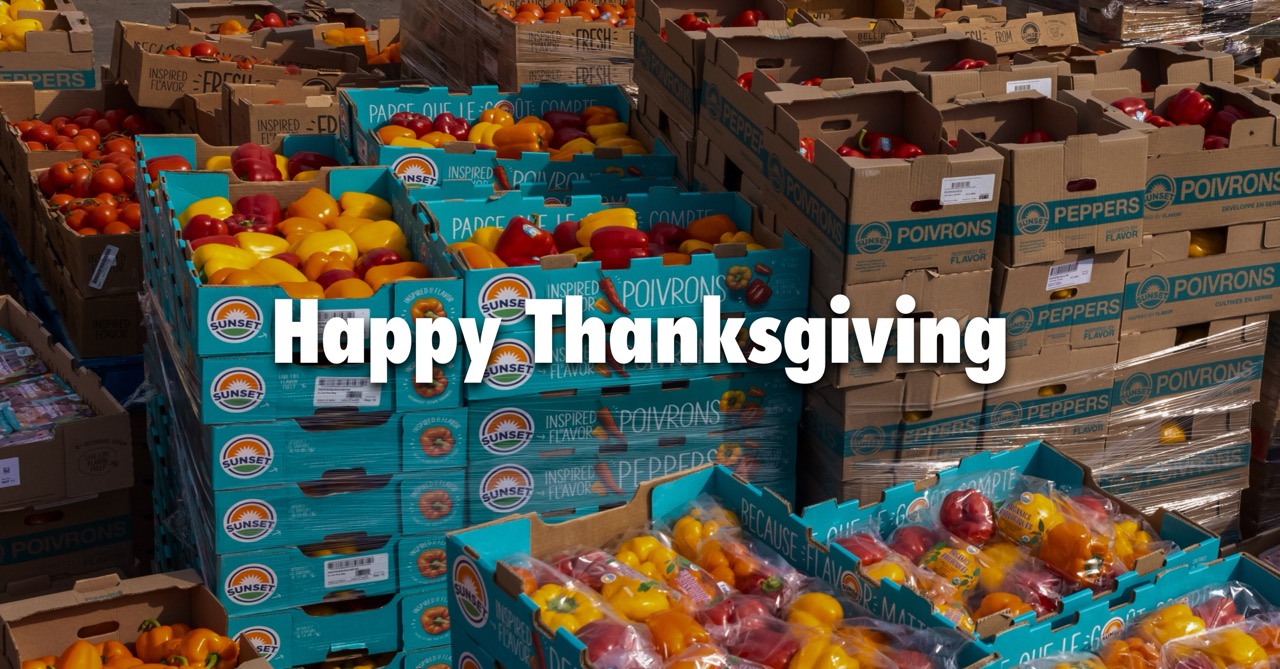
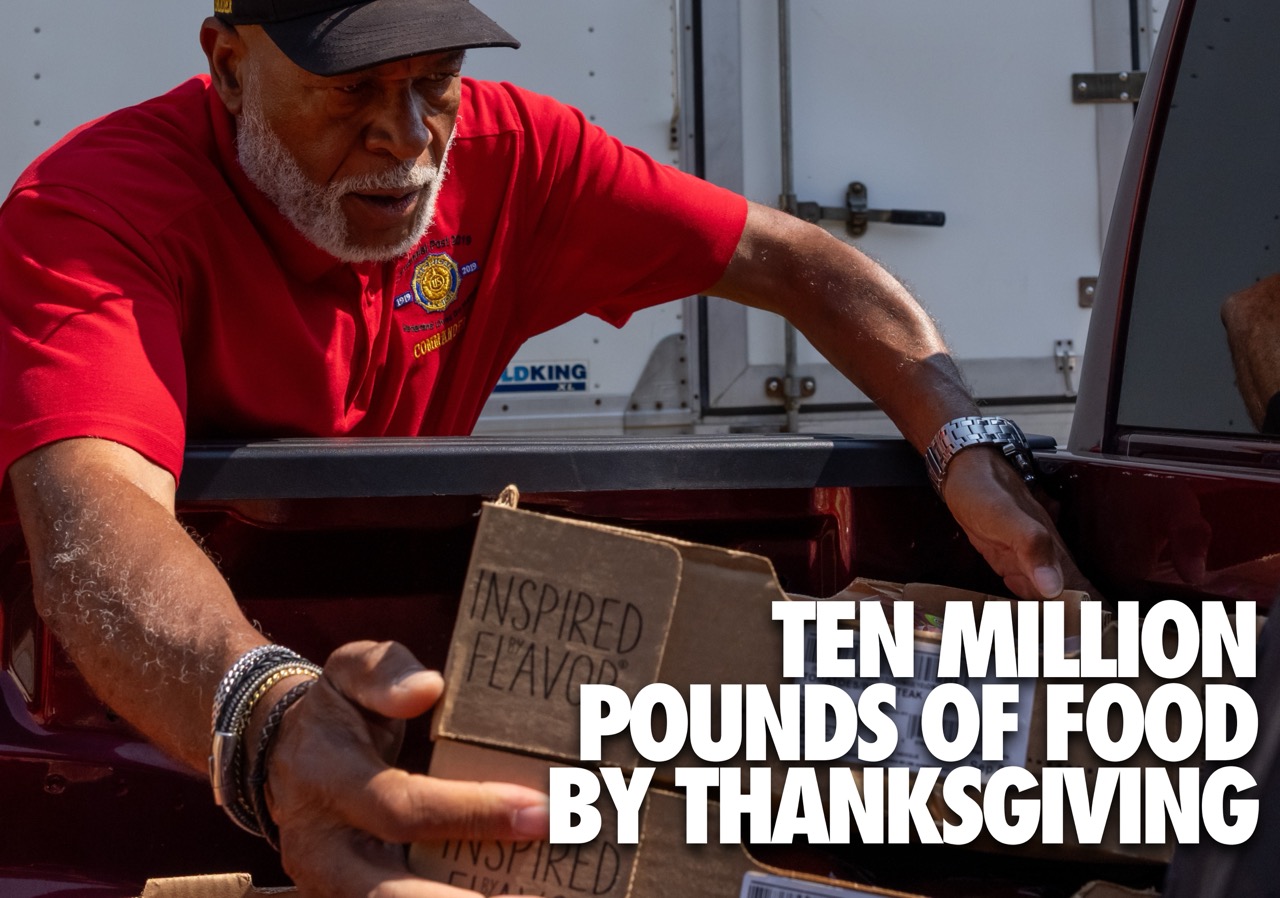
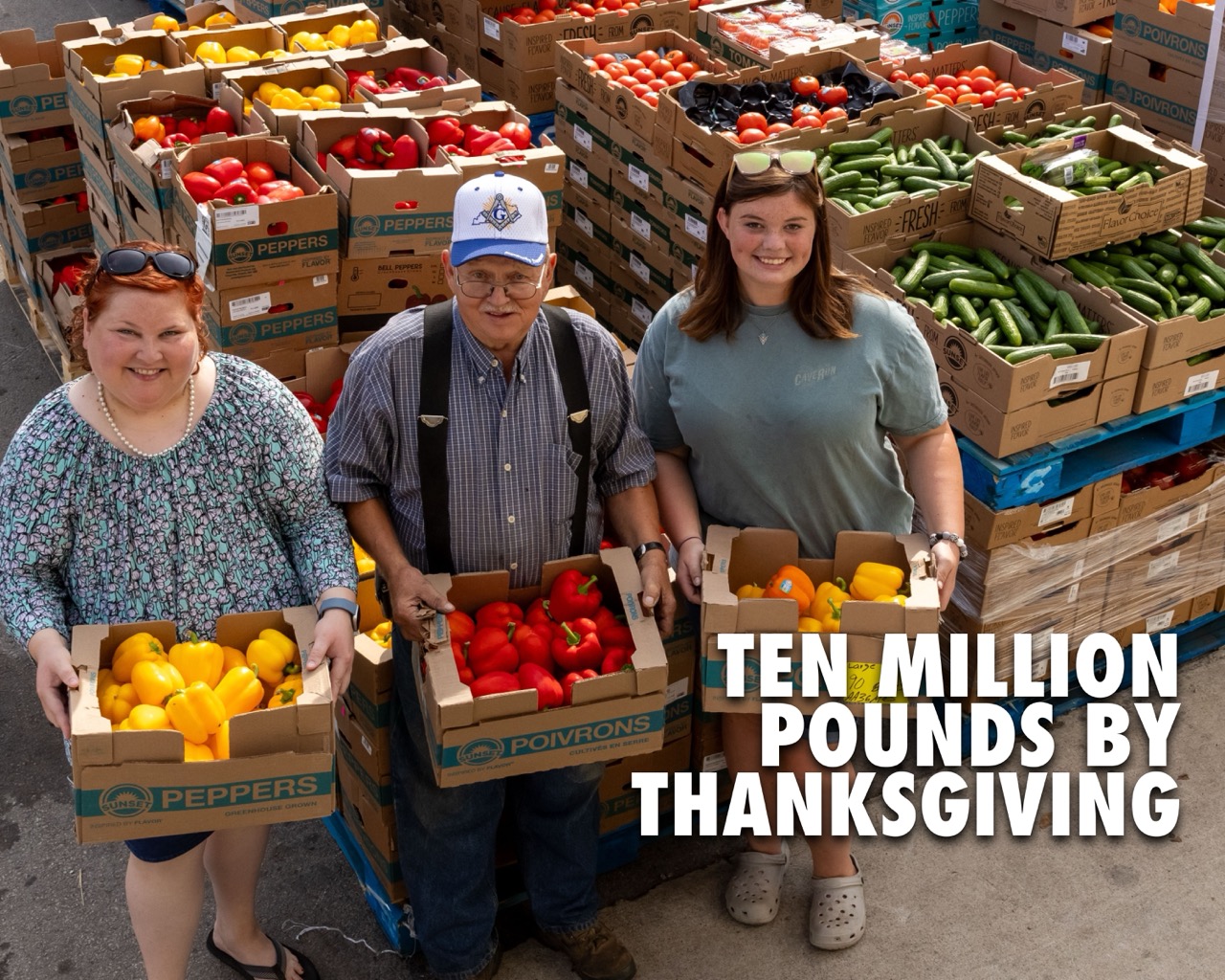
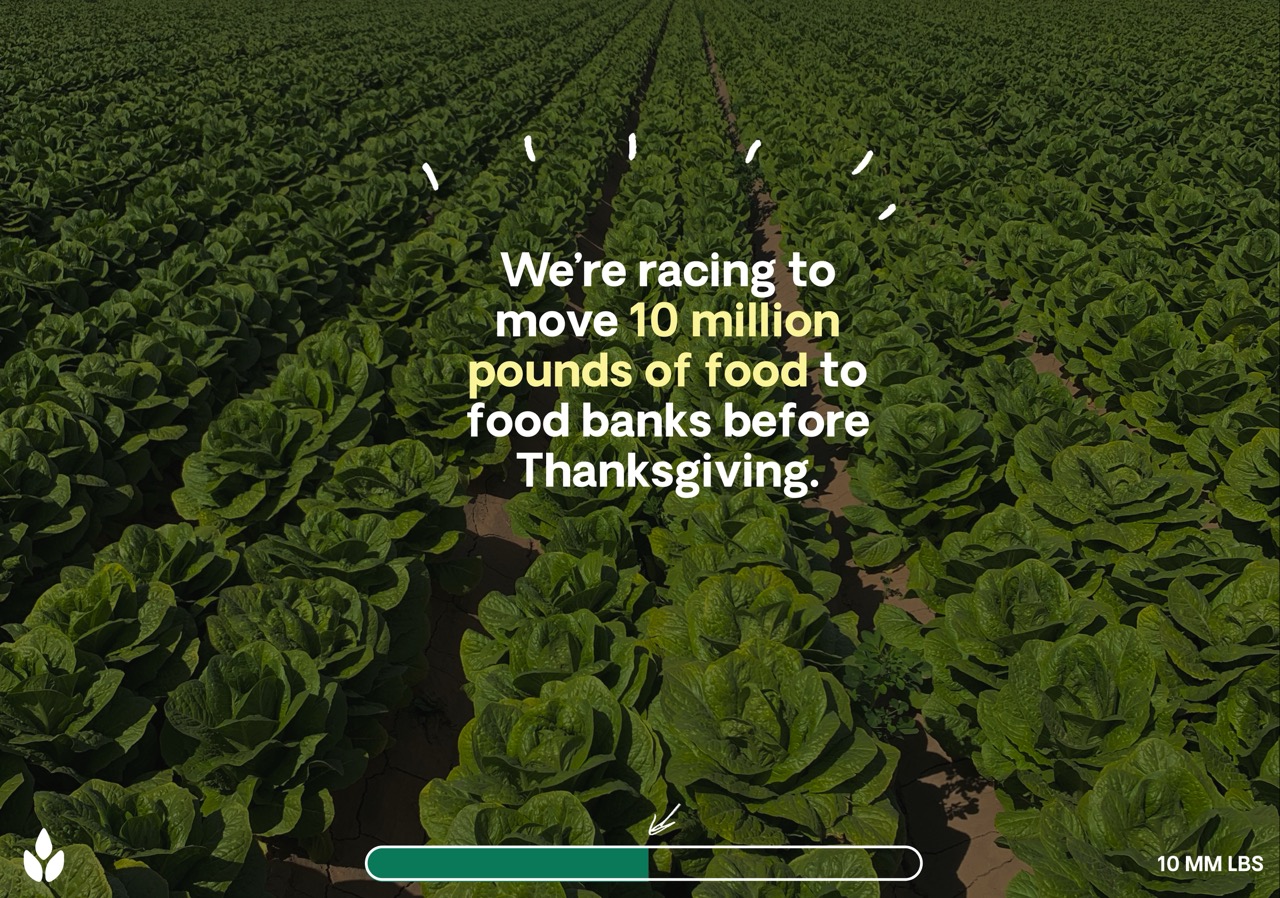
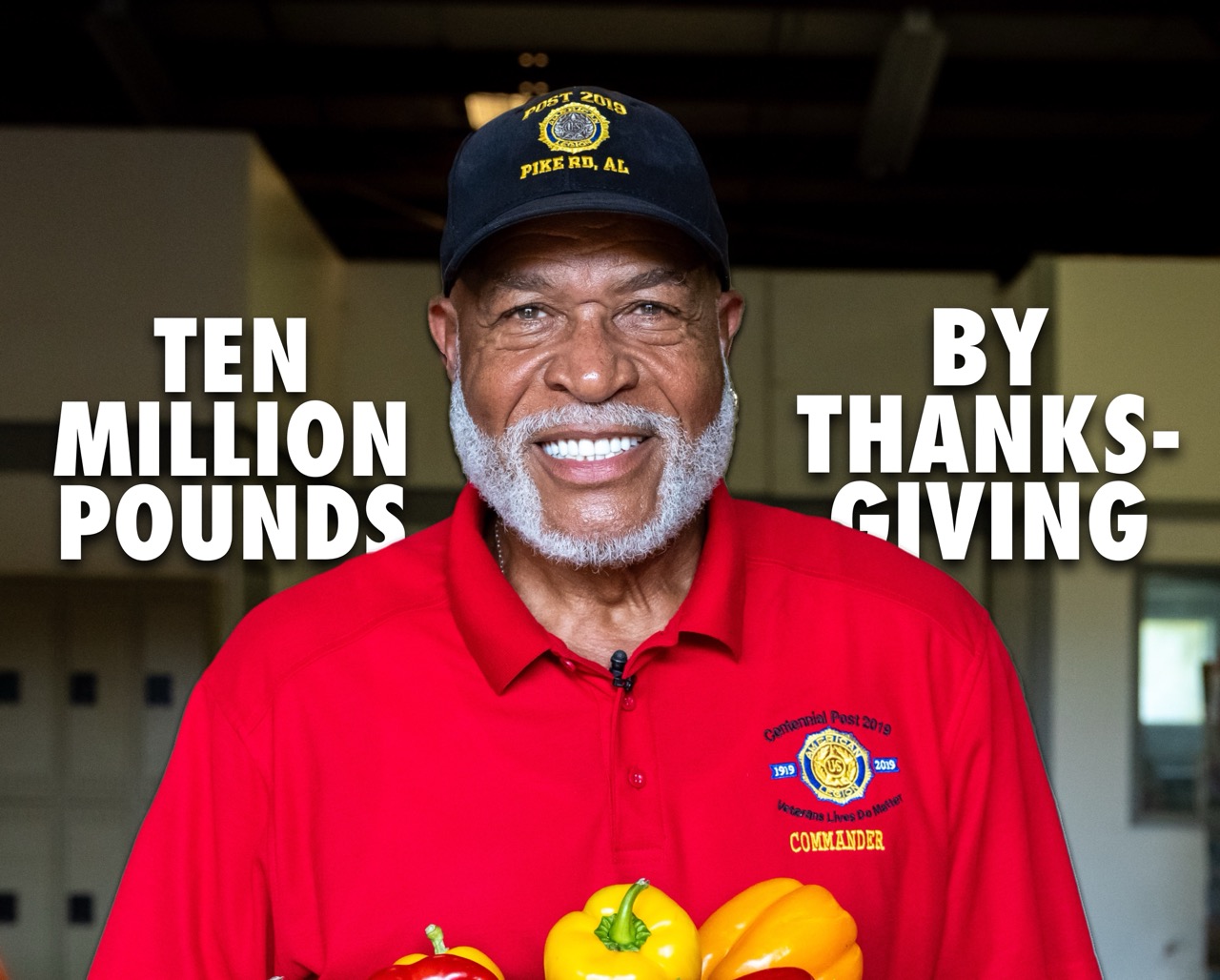
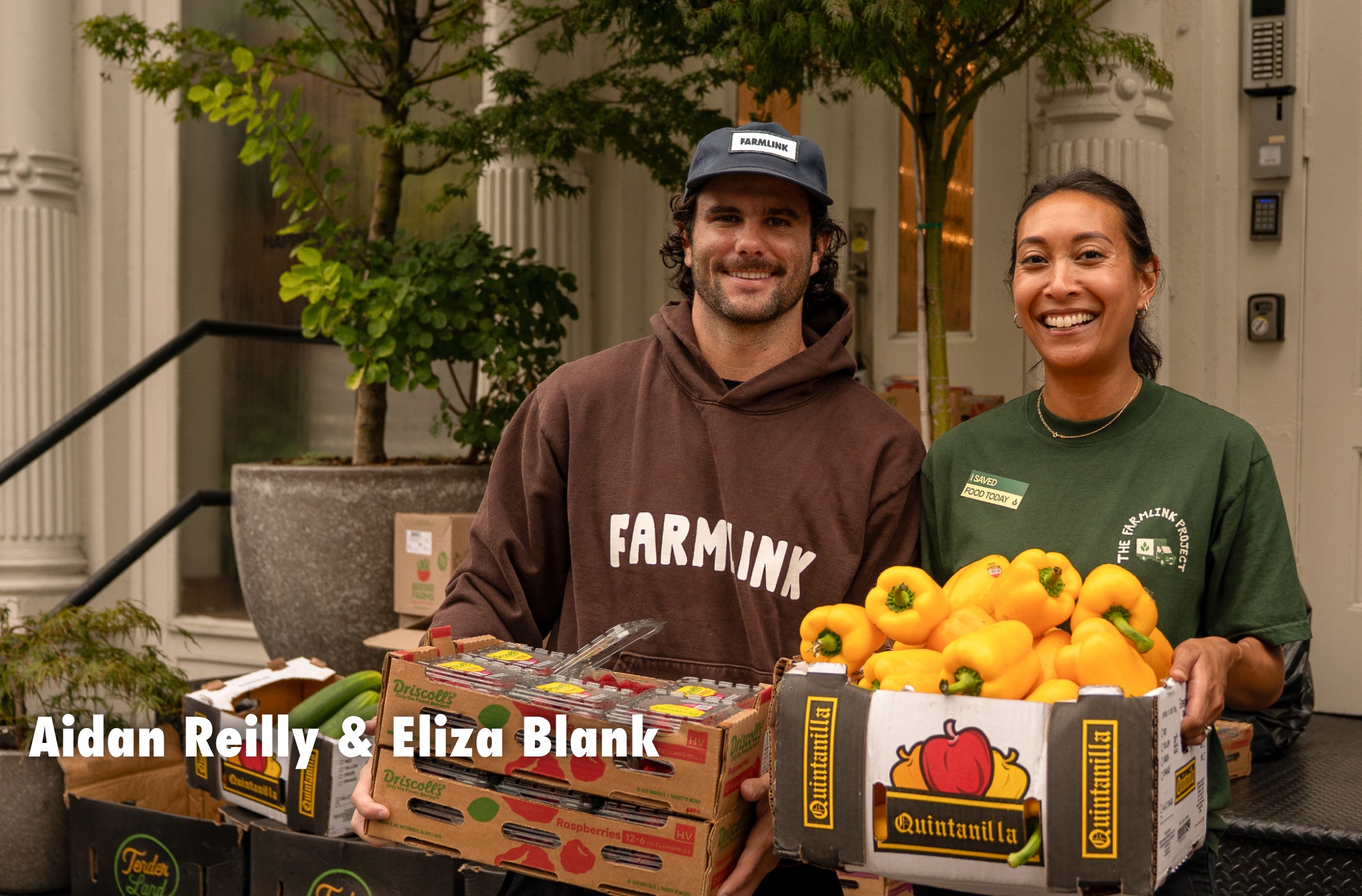
.svg)
.svg)
.svg)